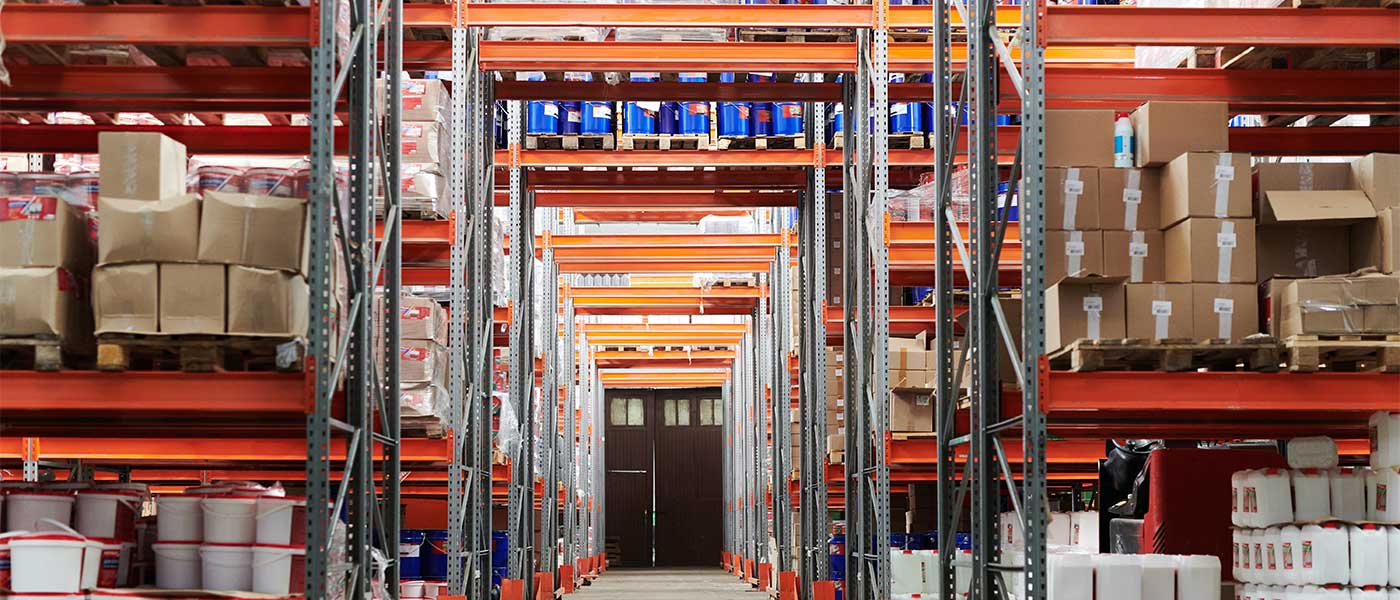Home to stable, tech-savvy shoppers with high disposable income, and a strategic location in Southeast Asia, it’s no wonder why Singapore is a prime market for e-commerce sellers to enter. Whether you’re a Chinese seller seeking a gateway to Southeast Asian countries or a local entrepreneur ready to tap into a growing online demand, Singapore holds immense growth potential for your business. This guide will equip you with the knowledge you need to navigate this dynamic landscape, exploring the market’s advantages, key trends, and essential steps to launch your e-commerce journey. So, buckle up, get ready to explore, and unlock your share of Singapore’s e-commerce success story!
The E-commerce Landscape in Singapore
Ranked as one of the easiest countries to do business in, the country has a favorable ecosystem for e-commerce. Singapore is connected to more than 600 ports across 120 countries. The nation also has more than 26 Free Trade Agreements with other countries, fostering ease of business. With over 5.8 million internet users, this presents a golden opportunity for businesses to reach a vast and engaged online audience.
So, why choose Singapore for your e-commerce venture?
- Reaching New Customers: Setting up an online store allows you to bypass physical limitations, expanding your reach beyond local markets and tapping into the global potential of online shoppers.
- Premium e-commerce market opportunity: Singapore boasts a premium domestic e-commerce market with high purchasing power. This, combined with its central location in Southeast Asia, makes it ideal for launching and expanding into the wider region.
- Pro-business Government Initiatives: The Singapore government actively supports e-commerce businesses through initiatives that simplify operations and reduce costs.
- Simplifying the Process: Third-party platforms like Shopee, Lazada, Shopify, Zalora, and TikTok offer user-friendly solutions, making it easier for small businesses to enter the e-commerce space even with limited technical expertise. This allows you to focus on building your brand and product offerings, leaving the technical aspects to the platform.
The combination of a growing online population, readily available platforms, and a supportive government environment makes Singapore an ideal launching pad for your e-commerce journey. Whether you’re a seasoned seller or just starting out, the potential in this market is undeniable.
Popular e-commerce platforms and marketplaces
Now that you have an idea of what the e-commerce industry holds in Singapore, let’s dive into the most popular e-commerce platforms and marketplaces making waves in country.
- Shopee: Shopee is the reigning e-commerce platform in Singapore. It boasts a massive user base in Singapore, with 93% of the traffic originating in the country. The user-friendly interface is ideal for both buyers and sellers. Furthermore, it is great for mobile-first experiences and flash deals.
- Lazada: A regional giant offering a wide range of products and an established brand presence, Lazada draws 95% of its traffic from Singapore. It has a strong focus on customer service and loyalty programs and has established itself as a retailer in the SEA region as a whole.
- TikTok Shop: A rising star in e-commerce, TikTok Shop receives almost 58% of its traffic from Singapore alone. It leverages the power of short-form video content to engage Gen Z and drive impulsive purchases. It is ideal for visually appealing products and is known for its deals and promotions across the social media app from which it derives its name.
- Shopify: The only DIY platform for building your own branded online store on this list, Shopify draws a robust amount of traffic from Singapore. It remains one of the Offers flexibility and customization but requires more technical expertise.
- Zalora: A fashion-focused powerhouse with a curated selection of brands and an established customer base, Zalora receives about 94% of its traffic from Singapore. It is perfect for apparel, accessories, and beauty products.
Common Trade Partners of Singapore
Singapore, a global trade hub, imports a diverse range of products to fulfill its domestic needs and support its thriving e-commerce sector. Some key import partners and their contributions to Singapore’s e-commerce landscape include:
- China: A major source of electronics, fashion apparel, and homeware, catering to the strong demand for these products online.
- United States: Supplies cosmetics, health supplements, and IT products, reflecting the growing health and tech consciousness of Singaporean consumers.
- Malaysia: Provides food and beverage items, as well as personal care products, highlighting the popularity of these categories in online shopping.
Beyond its import prowess, Singapore also boasts a flourishing export market driven by its strategic location and diverse manufacturing capabilities. Here’s a glimpse into Singapore’s e-commerce exports and their regional appeal:
- Southeast Asia: Singapore exports a wide range of products, including fashion apparel, electronics, and beauty products, capitalizing on the region’s rising middle class and growing online retail adoption.
- Australia: Food and beverage items, along with consumer electronics, find a ready market in Australia, owing to Singapore’s reputation for quality and innovation.
- United States: Electronics, machinery, and chemicals remain key exports to the US, showcasing Singapore’s established position in these industries and their global demand.
Demographics of Singaporean Shoppers and their preference
The success of your e-commerce venture hinges on understanding your target audience. Here’s a breakdown of the key demographics and preferences driving Singapore’s online shopping scene:
- Tech-Savvy & Mobile-First: Singapore boasts a highly internet-savvy population, with 67% of consumers using e-commerce platforms and applications for online shopping. This translates to a mobile-first shopping experience, so ensuring a user-friendly and responsive mobile platform is crucial.
- High Purchasing Power: Singaporeans enjoy a high average disposable income, which makes them willing to spend on online purchases. In fact, with an average basket size of 131 U.S. dollars per shopper, Singapore presents an opportunity for brands to offer premium, higher-quality products.
- Diverse & Multicultural: Singapore’s rich cultural tapestry translates to a diverse range of preferences and needs. Be mindful of cultural sensitivities and offer product options that cater to various ethnicities and religious values.
- Value-Conscious & Deal-Driven: While Singaporeans have high purchasing power, they are also value-conscious. Almost 42% look for deals online, and another 48% also look at in-store deals. Promotions, discounts, and flash sales can be powerful tools for attracting and retaining customers.
- Convenience Seekers: Time-pressed individuals prefer convenient shopping experiences. Fast delivery options, easy returns policies, and seamless payment gateways are essential for success.
- Brand Loyalty & Trust: Building brand trust and loyalty is vital in the competitive e-commerce landscape. Positive customer reviews, strong brand positioning, and excellent customer service foster long-term relationships with your customers.
By understanding these diverse demographics and preferences, you can tailor your e-commerce strategy to resonate with your target audience in Singapore, increasing your chances of success in this vibrant market.
Challenges of e-commerce in Singapore
While Singapore offers a promising e-commerce landscape, it’s not without its challenges. Here are some key hurdles you may encounter and strategies to overcome them:
- Fierce Competition: Standing out in a saturated market requires differentiation. Focus on unique selling propositions, niche product offerings, or exceptional customer service to set yourself apart.
- Reaching Your Audience: Understanding the local marketing landscape is crucial. Utilize social media platforms popular in Singapore, consider influencer marketing, and tailor your message to resonate with cultural nuances.
- Logistics & Fulfillment Costs: Singapore’s high land and labor costs can impact fulfillment expenses. Based on your needs and budget, evaluate various options, such as in-house fulfillment, 3PL services, or a hybrid model. Negotiate bulk shipping rates with carriers and explore cost-saving strategies like automated inventory management.
- Space Constraints: Storage space in Singapore is scarce and expensive, translating to higher storage costs. To optimize space utilization, consider outsourcing warehousing to a 3PL to significantly lower costs and cut down on labor charges.
- Technological Infrastructure: Evolving consumer needs demand a robust and scalable technological foundation. Therefore, it is crucial to invest in a reliable e-commerce platform and secure payment gateways. Opt for an OMS that helps you automate orders. Look for features around auto-assignment of the most cost-effective last-mile carrier, expiry management, and better coordination with warehouses to help with picking and packing orders.
- Customer Service Excellence: Building trust and loyalty requires exceptional customer service. Respond promptly to inquiries, handle complaints professionally, and offer easy return and exchange policies. Prioritize building genuine customer relationships for long-term success.
How to Get Started
Ready to unlock your e-commerce potential in Singapore? Here are the key steps to get you started:
- Prioritize compliance: Before diving in, ensure thorough compliance with relevant regulations. Familiarize yourself with data protection laws, consumer protection regulations, and any licensing requirements specific to your industry.
- Tax & License Registration: Register for Goods and Services Tax (GST) if applicable and obtain necessary business licenses and permits. Consult with legal and tax professionals for personalized guidance.
- Choose a Platform: Choose your e-commerce platform based on your needs and budget. Popular options in Singapore include Shopee, Lazada, Shopify, Qoo10, and Zalora. Consider multi-channel selling to reach a wider audience but ensure integrated inventory management across platforms for seamless operations.
- Importing Regulations: Understand import regulations, customs duties, and tax implications for your products. Partner with reliable suppliers and ensure proper documentation for smooth import clearance.
- Have Adequate Inventory Insight: Establish a robust inventory management system to track stock levels, predict demand, and avoid stockouts. Utilize technology and implement efficient inventory practices for optimal control.
- Pick the right Fulfillment service: Find a reliable logistics and fulfillment partner. Compare options like in-house fulfillment, 3PL services, or a hybrid model based on your budget, order volume, and growth plans. Prioritize efficient delivery and returns management.
E-commerce Logistics & Fulfillment in Singapore
Fulfilling orders efficiently and delivering positive customer experiences are crucial for success in e-commerce. When you eye Singapore as an ideal location for your e-commerce business, weigh in diverse fulfillment options to suit your needs, each with its own advantages and considerations:
- In-house Fulfillment
This type of fulfilment offers greater control over inventory and branding. It is ideal for businesses with high-value products or specific packaging needs. However, it requires significant investment in warehousing, staffing, and technology, that could eat into your revenue, especially when you are new to the market, and have plans to capture significant market share. Moreover, managing fluctuating demand and scaling operations can be complex.
- 3PL (Third-Party Logistics) Fulfillment
Opting for 3PL fulfilment allows you to focus on core business activities while leveraging the expertise and infrastructure of a dedicated fulfillment provider. It also offers cost-efficiency, especially for startups or businesses with fluctuating order volumes.
Partnering with Singapore’s top 3PL provider like Locad offers flexible and scalable fulfillment solutions, tailored to your business’s specific needs and growth aspirations. Moreover, an established network ensures efficient order processing, warehousing, and nationwide delivery.
How choosing a reliable 3PL in Singapore can be a gamechanger
Today’s consumers expect seamless shopping experiences across various channels (website, marketplaces, social media). A unified fulfillment strategy such as multi-channel fulfilment – similar to the type offered by Locad – ensures consistency and efficiency, regardless of where orders originate.
So what should you ideally look for when choosing your style of fulflilment? Look at these criteria:
- Insights and forecasting: Partner with a provider that offers data-driven insights to optimize inventory management and predict demand fluctuations.
- Affordable pricing: Choose a fulfillment solution that aligns with your budget and scales with your business growth.
- Multichannel services: Ensure seamless fulfillment across all your sales channels, eliminating the hassle of managing multiple tools and logistics providers.
- Cross-border offerings & Trade services: Consider providers who can handle international fulfillment and trade processes, especially if you plan to expand regionally.
- Scalability: Choose a partner who can scale their operations to accommodate your future growth aspirations.
Carefully evaluating these factors and considering your specific needs allows you to select the right fulfillment solution that empowers your e-commerce success in Singapore.
Optimize your new business for success.
Launching your e-commerce business in Singapore is just the first step. To thrive in this competitive market, you need to continuously optimize your operations and cater to the evolving needs of your customers. Here are key strategies to enhance your e-commerce journey:
- Integrated Logistics
Utilize technology-enabled solutions to integrate your inventory management, order processing, and fulfillment operations. This ensures real-time visibility, streamlined workflows, and efficient delivery fulfillment.
- Distributed Asset Framework
Consider a distributed asset framework for regional expansion. Partner with fulfillment centers strategically located across Southeast Asia to ensure faster delivery times and reduce shipping costs.
- Streamlined Returns & Refunds
Offer a hassle-free returns and refund policy to build trust and encourage repeat business. Implement a clear and efficient return process to ensure customer satisfaction and minimize administrative hassle.
- Personalized Picking and Packing
Go beyond basic transactions and create personalized experiences. Design custom packaging for your brand to go with customized product recommendations and flexible delivery time slots to cater to individual needs.
- Exceptional Customer Service
Prioritize excellent customer service at every touchpoint. Respond promptly to inquiries, handle complaints professionally, and offer multiple communication channels for easy accessibility.
- Multiple Last-mile carriers
To accommodate various customer preferences, ensure access to top last-mile carriers in Singapore. Choose an OMS that auto-assigns the cheapest last-mile carrier based on the order at hand to ensure cost as well as time saving.
- List Products Correctly
Create compelling product descriptions with high-quality images and accurate information. Utilize relevant keywords to enhance search engine visibility and improve product discoverability.
- Consider 3PL Services
Leverage the expertise and infrastructure of a 3PL service provider to manage your fulfillment needs efficiently, especially during initial stages of your business. This allows you to focus on core business activities while ensuring smooth order fulfillment.
Wrapping Up
Singapore’s booming e-commerce landscape presents a golden opportunity for businesses seeking to expand their reach and tap into a dynamic online market. From a tech-savvy population to a well-developed infrastructure, this island nation offers a fertile ground for e-commerce ventures to flourish.
However, navigating this competitive space requires careful planning and strategic execution. Understanding the key trends, popular e-commerce platforms, and essential steps for getting started becomes crucial. Additionally, establishing a robust and scalable system from the outset lays a solid foundation for growth. This includes choosing the right fulfillment partner, optimizing inventory management, accessing last-mile connectivity and coverage, optimizing your online store, and prioritizing exceptional customer service.
Whether you’re a seasoned seller or just starting your e-commerce journey, this guide equips you with the knowledge and insights to navigate the Singaporean market with confidence. Remember, success hinges on continuous adaptation and optimization. So, take the first step towards your e-commerce success story in Singapore today!
Do I need a Licence to sell online in Singapore?
Generally, no specific license is needed, but specific activities or products might require permits. Consult legal professionals for guidance.
Which eCommerce platform is best in Singapore?
There is no single “best” platform. When choosing from options like Shopee, Lazada, or Shopify, consider factors like budget, technical expertise, and target audience
Can foreigners do online business in Singapore?
Yes, but you’ll need to comply with business registration and foreign ownership regulations. For detailed information, consult relevant authorities.
Is selling online taxable in Singapore?
Yes, if your annual turnover exceeds S$1 million, you need to register for Goods and Services Tax (GST).
Is it legal to resell products in Singapore?
Generally yes, but ensure you acquire products legally and comply with relevant regulations like consumer protection and intellectual property laws.











